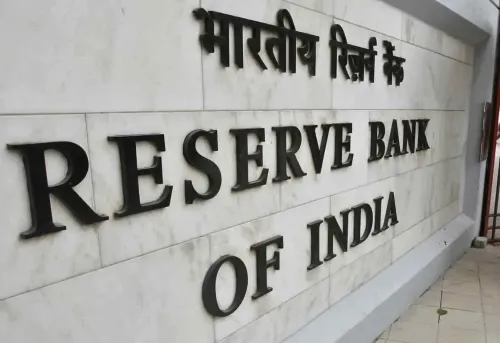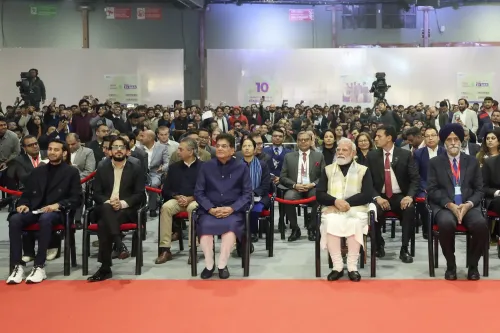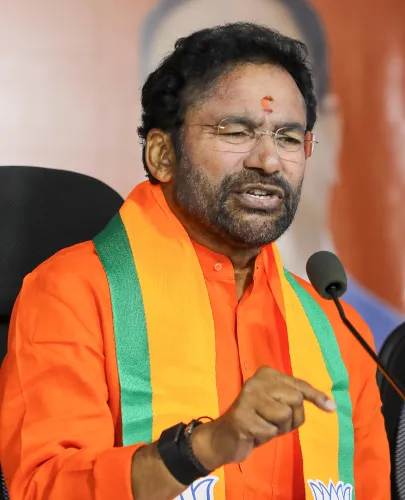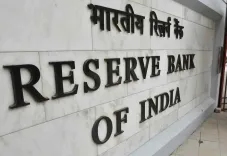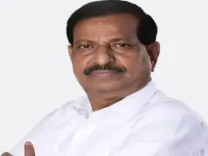What Does the New NITI Aayog Report Reveal About India’s Innovation Journey?
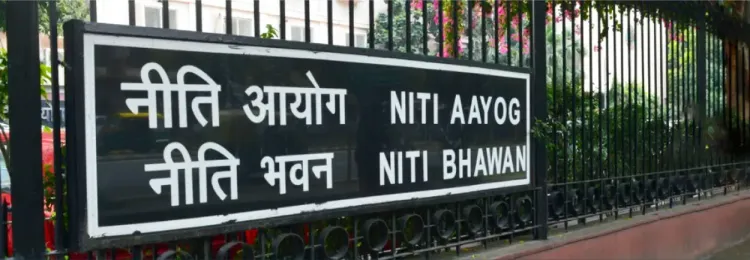
Synopsis
Key Takeaways
- Comprehensive Assessment: The report evaluates India's innovation ecosystem.
- Strategic Roadmap: It outlines a pathway for future innovation growth.
- Collaborative Efforts: Emphasizes partnerships among academia, industry, and government.
- Inclusive Innovation: Advocates for context-driven approaches to tackle real-world challenges.
- Global Positioning: Aims to enhance India’s standing in global innovation rankings.
New Delhi, Sep 23 (NationPress) The NITI Aayog unveiled a significant report on Tuesday, chronicling India’s extraordinary journey in science, technology, and innovation. This comprehensive assessment highlights the nation's achievements, obstacles, and prospects for reinforcing its stature as a global innovation center.
The report offers an all-encompassing perspective on India’s innovation landscape, showcasing national and state efforts, industry and grassroots advancements, startups, partnerships among universities, industries, and government, as well as India's global innovation standings.
Additionally, it pinpoints systemic challenges and outlines a forward-thinking roadmap that emphasizes scaling successful models, promoting deep technology innovation, enhancing knowledge creation, improving global integration, and building innovation capacity across various states.
During the report’s launch, titled “Pathways to Progress: Analysis and Insights into India’s Innovation Story,” Dr. Deepak Bagla, Mission Director of the Atal Innovation Mission (AIM), discussed AIM’s critical role in nurturing entrepreneurial talent and stimulating widespread innovation, thereby cultivating a vibrant startup ecosystem throughout the nation.
Dr. VK Saraswat, a member of NITI Aayog, stressed the strategic significance of science, technology, and innovation in shaping India’s developmental journey.
He indicated that the report delivers essential evidence-based insights to inform policymaking, strengthen institutional connections, and enhance collaboration among academia, industry, and government.
Union Minister Dr. Jitendra Singh highlighted that innovation in India is widespread and extends beyond cutting-edge technologies.
He showcased the government’s efforts to advance research, encourage technology development, and facilitate the commercialization of innovations across diverse sectors.
Furthermore, he emphasized the need for inclusive and context-driven innovation that tackles real-world challenges while bolstering India’s ability to compete globally and promote sustainable, equitable growth, as stated by NITI Aayog.
Education Minister Dharmendra Pradhan accentuated India’s advancements in establishing a robust innovation ecosystem. He reiterated the need to position Bharat as a premier global brand in knowledge, science, and technology.
He urged for leveraging India’s youth, talent, and institutional strengths to foster innovation that is both scalable and inclusive.


